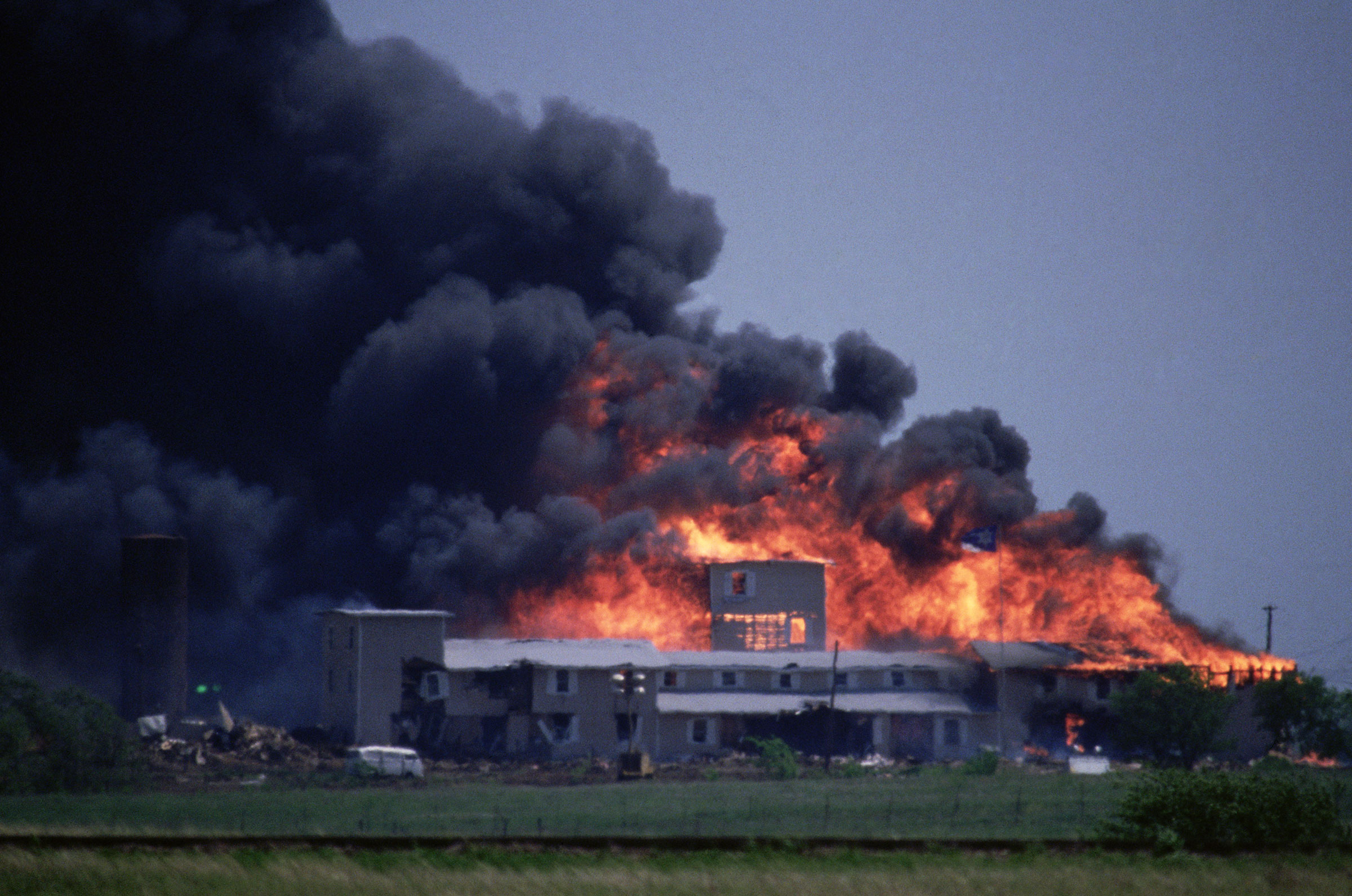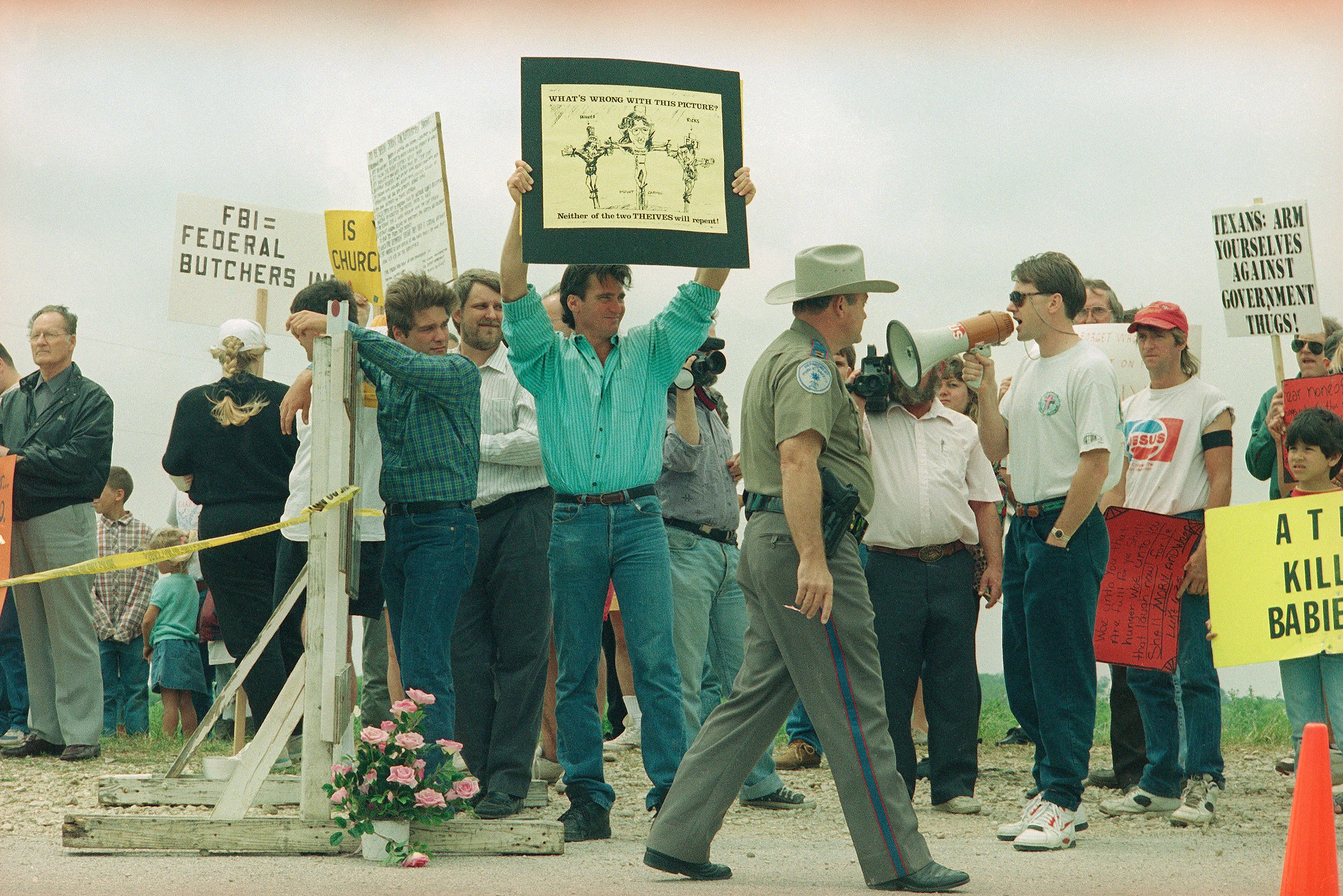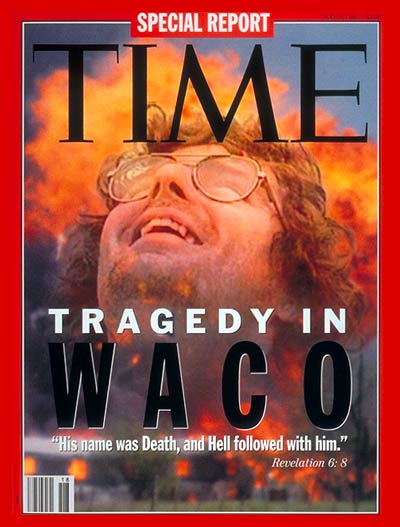
On Saturday, despite a possible indictment looming, former President Donald Trump is holding a rally in Waco, Texas. The Trump 2024 presidential campaign told TIME they chose the city because of its central location and Texas’ role in the primary, but Waco has an infamous, violent history: it was the site of a deadly standoff between an anti-government cult and federal law enforcement thirty years ago.
The conflict started on Feb. 28, 1993, when agents with the Bureau of Alcohol, Tobacco, and Firearms, and Explosives (ATF) raided the compound of the Branch Davidians cult near Waco because federal and state law officials were afraid that members were stockpiling weapons. Cult leader David Koresh, who claimed he was God, had convinced more than a hundred people to join him at the armed fortress “to await the end of the world,” as TIME described the group’s beliefs back then. Koresh was willing to be a martyr who would “die in a battle against unbelievers, then be joined in heaven by the followers who chose to lay down their lives for him.” As the magazine reported, Koresh got a phone call tipping him off that the federal agents were coming and the Branch Davidians met them with gunfire. Four agents died and 16 were wounded, as well as about a dozen cult members and their children.

A 51-day standoff ensued. Reporting on the incident at the time, TIME obtained two letters that Koresh sent the FBI over the weekend of April 10, dictated to one of his 19 wives on lavender notepaper. “I AM your God,” he wrote, “and you will bow under my feet. Do you think you have the power to stop my will?” The fatal siege culminated on April 19, 1993, when a fire set by the Branch Davidians killed 76 compound members, including children, and several ATF agents.
More from TIME
Read More: ‘Very Symbolic!’: Trump’s Plan for Waco Rally Spurs Anti-Government Supporters
Waco had long been a hub of white power activity. Among white power activists who were already fearing racial extinction, the disastrous raid just reaffirmed that the state was “inherently evil” and gave rise to “a new surge in militia organizing,” according to Bring the War Home by Kathleen Belew, an expert on the history of right-wing extremism. In the aftermath, “the militia movement surged to more than 50,000 members in 47 states, and focused increasingly on taking violent action to stop the rampant federal government.” Belew’s research finds the surge was even greater than the resurgence of the Ku Klux Klan in the 1920s. And Waco directly inspired another famous act of violence: the mastermind behind the 1995 Oklahoma City bombing, Timothy McVeigh, went to Waco during the standoff and launched the attack on the two-year anniversary of the April 19 siege, which he saw as “a massacre carried out by a rampant superstate and its corrupt agents,” as Belew put it.

Waco has since become a pilgrimage site for some members of the far-right who see special significance in the city’s history of civilians confronting what they viewed as government overreach. In an adapted excerpt from the new book Waco Rising, author Kevin Cook writes about how Waco is now a tourist attraction, visited by families and militia members who see it as one of the hubs of the modern-day extremist “patriot movement.” Several thousand people around the world still call themselves Branch Davidians. There’s a chapel on the site of the compound, thanks to a fundraising drive by conspiracist Alex Jones. Merchandise for sale at the chapel include Trump shirts and a poster with Koresh wielding a rifle over a line directed at President Joe Biden: “SLEEPY JOE, WAKE UP OR WACO! COME GET IT!”
More Must-Reads from TIME
- Cybersecurity Experts Are Sounding the Alarm on DOGE
- Meet the 2025 Women of the Year
- The Harsh Truth About Disability Inclusion
- Why Do More Young Adults Have Cancer?
- Colman Domingo Leads With Radical Love
- How to Get Better at Doing Things Alone
- Michelle Zauner Stares Down the Darkness
Write to Olivia B. Waxman at olivia.waxman@time.com